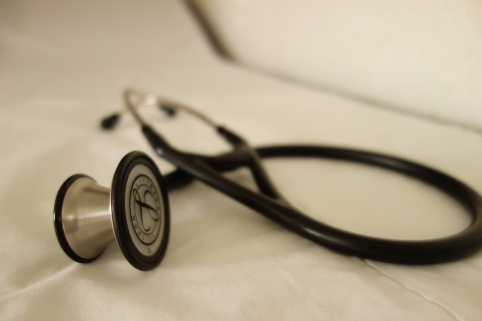Supreme Court Makes Landmark Decision on Medical Negligence
The Supreme Court of Maldives, on 25 July 2019, has ruled against the State (Ministry of Health) and held that medical negligence was manifest in the treatment administered to Aishath Iyan Ihsan which consequently left her deaf. The appeal filed by the father of the toddler, Ahmed Ihsan, overturned the decision made by the Magistrate Court, and the High Court of Maldives, and awarded MVR 7.1 million as compensation.
The landmark decision made by the Supreme Court ends an almost decade long court battle for the Appellant, Ahmed Ihsan, who sought recompense for the loss of hearing to his then three-year-old daughter Aishath Iyan. Initially admitted to Gdh. Thinadhoo Regional Hospital on 14 July 2007 for a high fever and inflammation of her left hand, and the presence of a bacterial infection was detected from tests performed at the hospital. Then attending paediatrician Dr. Paval decided to administer Gentamicin – a strong antibiotic used for treating bacterial infections with some severe side effects – to Iyan. The administering of Gentamicin is what led to Iyans deafness, as was alleged by Ahmed Ihsan in the initial filings with the Magistrate Court. Ahmed Ihsan claimed that the Hospital did not take the proper care and did not ensure whether the dosage administered to Iyan was safe for a toddler of her age and weight. Both the Magistrate Court and High Court of the Maldives, ruled in favour of the State ruling that there was no apparent negligence by the State, during the care and treatment of Iyan.
The Supreme Court, in it’s decision, delved into the importance of the duty of care of doctors, and providing the highest standard of care and service in the medical profession was a generally accepted international standard in the medical industry. The Supreme Court further stated that the principle “omissive liability” – when a doctor or medical professional, in the course of their work, deviates from the best practices and acceptable medical standards, provides poor quality care or treatments which can be considered sub-standard – would be applicable to the case before them. The Supreme Court cited Section 35(e) of Law Number 29/2015 (Health Services Administration Act) and Section 50(a) of Law Number 13/2015 (Medical Professionals Act) and referred to the importance of responsible and competent provision of services by health care providers, and that all persons engaged in the medical profession must adhere to the best practices and standards of the medical industry. Though the aforementioned laws were not in force at the time of the original dispute, the Supreme Court, citing Article 68 of the Constitution of the Maldives, stated that the underlying principles in the cited Sections must be referred to, and relied upon when making a judgement on these types of matters.
To impose civil liability in these types of cases, the Supreme Court stated that 3 conditions must be met; the presence of malpractice, damage to the patient, and a causal relation between the malpractice and damage suffered by the patient. The Court, in it’s findings, held that all 3 conditions were met, and referred to several errors by the State in maintaining proper patient records, and a lack of credibility of the records presented to the court, as well as conflicting evidence submitted by the State. Further, the Supreme Court relied on expert opinion on the effects of Gentamicin and the degree of care required in its administration. The Apex Court also noted that, at the time Aishath Iyan was admitted to the Regional Hospital, there was no records of hearing impairment or loss. Based on this, the State was unable to prove that, aside from the administering of Gentamicin, any other factor led to the loss of her hearing.
The Supreme Court awarded Ahmed Ihsan, A total of MVR 7,119,100 , which was considered reasonable to cover the financial losses, mental distress and the impact the injury has on the child’s quality of life.



